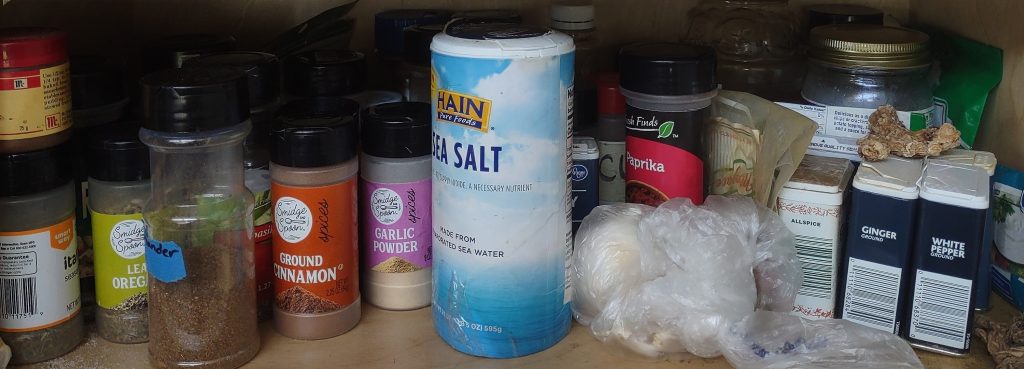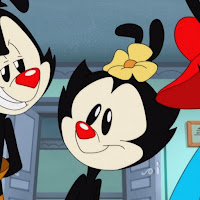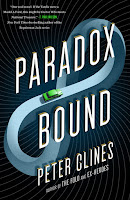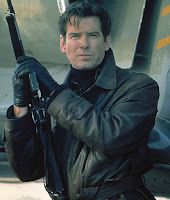I’m assuming most of you are familiar with Ludwig Wittgenstein from his philosophical work involving mathematics, logic, and language. He’s considered the most noteworthy philosopher of the twentieth century. What he’s less known for is a fairly dry series of what we’d now probably call YA sci-fi stories he wrote at Cambridge, showing his idea of a utopia, what sort of problems could arise in such a utopia, and how the peoples of such a world would respond to said problems.
The reason you probably haven’t heard of that less known bit is because I just made it up. Or did I? You’ve got no idea, do you? But you’re going to keep reading to find out…
Another possibly made-up story I’ve heard about Wittgenstein is that one day he was walking in the city with someone, discussing history and knowledge in general, when his companion made the observation that people in ancient times must’ve been… well, really stupid. How could they possibly have thought the sun went around the Earth? I mean, it’s so obvious how the two interact once you stop to think about it. Were people just… a lot smarter back now?
And as the story goes, Wittgenstein nodded agreeably through most of the little tirade, and then, when he had a chance to respond, he wondered, just out of curiosity… what would it look like if the sun was orbiting the Earth?
While you’re dwelling on that, let me talk about the pandemic a bit.
Like a lot of folks, I ended up using the lockdown to work on my cooking skills. Watched a lot of YouTube videos. Ended up trying a lot of Korean recipes and even some vegan/vegetarian ones. I can make pretty good fried rice now. And some fantastic spicy broccoli noodles. Also, those plant-based meats like Beyond and Impossible cook up great in dishes that call for ground beef.
One of the biggest parts of this learning curve was learning the difference between preparing to cook and the actual act of cooking. Like a lot of you, I’m guessing, I tended to do a lot of stuff on the fly. And it usually led to me getting more and more frantic as I was looking for this ingredient or that implement and crap how long has that been in the water now? Crap crap crap turn the pan down and where the hell is the colander?!?

Anyway, point is, my cooking skills improved a lot once I started doing a little more prep work. Not to the level where I had ten silver bowls each one with an ingredient in it, but also… not far from that. I get all my veggies cut, get the sauces mixed, get individual spices or oils out. It takes a little longer, but my cooking’s consistently so much better.
The other cool thing about the prep work is that it’s kind of free-form. It doesn’t really matter what order I do most of it in as long as most of it’s done before I start cooking. Maybe I’ll pull out everything I need to make the spicy sauce. If my partner’s around, maybe I’ll cut mushrooms and peppers while we talk or watch something silly. Sometimes I make the sauce while I’m waiting for the water to boil for noodles. It doesn’t really matter as long as I get enough of it done that it’s not slowing me down once the timers get set.
Anyway, maybe some of you have figured out what I’m getting at here. And some of you are just getting hungry. Its okay, go grab something, I’ll wait.
One question that tends to come up a lot in writing discussions is how do you start? Do you need characters first? Should I begin with the plot? How much do I need outlined? Do I have to know my theme right out of the gate?
Here’s the ugly truth big writing degree doesn’t want you to know (“gurus hate him…”). It doesn’t matter. Seriously, doesn’t matter in the slightest.
Whatever little snippet of dialogue or character quirk or cool worldbuilding idea that sparks a story in your head—that was the correct thing to begin with. If the first thing you want to do is figure out a coherent theme or write out a beat-for-beat plot… fantastic. Character sketches? Big swaths of dialogue? That one big twist scene at the end that’s going to freak everyone out? Do it! It’s all good.
All of this stuff is the prep bowls. They’re the scattered ingredients we’re going to pull together to make our story. But it doesn’t matter what order we set them up in—it just matters that they’re there on hand when we turn on the heat and start working. I don’t want to be sixty pages in and find myself thinking “okay, and maybe our hero has a love interest who’s… a woman… who works at… her job… and has a… name.”
And the reason it doesn’t matter how I start is that nobody’s going to see this part of it. It’s like the first draft I don’t show to anyone, except this is pre-first draft. Nobody sees any of this. At best, it’s a two-minute story I get to tell in an interview about “where did you get the idea for this?”
Y’see, Timmy, what 99.9% of all people are going to see is the finished book. And even if you set up your prep bowls in the complete opposite order I did, nobody’s ever going to know. Because both of us are going to have completed, polished books with all those elements seamlessly integrated. Two very different processes end in the same result.
So stop worrying about starting with the right thing and just start with your thing. The thing that caught your attention. The thing that sparked your imagination.
Next time, well, I guess we should talk about that thing marking the spot. Or what used to be the spot.
Until then… go write.







